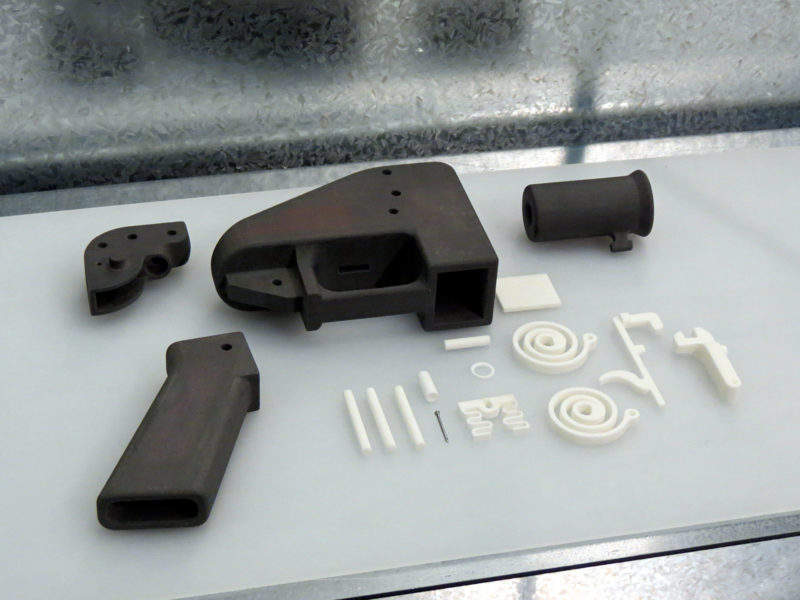
A study by the RAND Corporation has suggested that 3D printed weapons could benefit enemy military forces, violent extremists and street criminals, who could produce their own weapons for use and sale.
The think tank, which provides research and analysis to the US Armed Forces, found that 3D printing technology, also known as additive manufacturing, is susceptible to hacking.
The research paper, named ‘Additive Manufacturing: Awesome Potential, Disruptive Threat’, gave the example of saboteurs introducing flawed instructions or algorithms into mission-critical parts of aeroplanes.
“Lone-wolf attacks may become more lethal when individuals have ready access to 3D printers,” said RAND associate political scientist Trevor Johnston, lead author on the study.
“Even in countries like the United States, where gun control laws have done little to restrict access to semi-automatic weapons, additive manufacturing could increase the risk of violence and murder.”
The study highlighted that 3D printed weapons may also indirectly support the survival and rise of isolated states such as North Korea, which could produce complex items domestically and avoid penalties imposed by the international community.
How well do you really know your competitors?
Access the most comprehensive Company Profiles on the market, powered by GlobalData. Save hours of research. Gain competitive edge.

Thank you!
Your download email will arrive shortly
Not ready to buy yet? Download a free sample
We are confident about the unique quality of our Company Profiles. However, we want you to make the most beneficial decision for your business, so we offer a free sample that you can download by submitting the below form
By GlobalDataDecentralising manufacturing could also encourage locally-produced goods, which would reduce dependency on imported goods and in the process weaken international networks and their respective supply chains. This could, in turn, create negative consequences for labour markets.
“Unemployment, isolation and alienation of middle and low-skilled labourers may be exacerbated by additive manufacturing, potentially leading to societal unrest in both developed and developing countries,” said RAND associate economist and author on the paper Troy Smith.
“The potential security implications of large masses of unemployed, disconnected people are substantial.”
The authors theorised that the scale and impact of future threats will depend in part on the regulation and evolution of 3D printers, the raw materials that they use, and the software that determines the product’s design.
While the paper suggests limiting supplies of dangerous raw materials—such as those used in dirty bombs—and monitoring online communities, they do not believe such preventative measures will stop new risks connected to 3D printing.
Instead, it recommends that policymakers focus on measures that mitigate the potential impact and cost of future threats.






